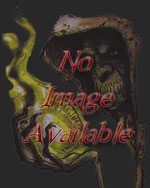

|
Contra/Diction : New Queer Male Fiction |
| book fiction 
|

|
Description:
Contra/Diction is a collection of stories - full of rage, wonder, and bereavement - that represent the plurality of gay identity confirming, as suggested in the Introduction, that not all gay men 'drive to Ikea, go to the gym and buy new ties for their management-level positions before taking in the latest stage hit.' In these stories, the nightmare and paradise of sexuality, love, and community are viewed from different perspectives, along with issues of race, class, violence, politics, and homophobia: dark fantasies about hustlers and one-night stands, cautionary tales about murderers and dreamers.
|
Qvamp says: Included in this collection is 'The Man From Milwaukee' by Rick Reed, a story about Jeffrey Dahmer. |
|
Queer stories see story descriptions
Read it? Want others to know what you thought of it, then rate this book
Want to buy it?
British Columbian editor Grubisic's anxiety over the 'growing consumerist ethos'Athe idea that gay men can purchase acceptability by becoming a desirable target marketAinspired him to seek out less-chronicled swaths of gay life. The 32 stories he collected convey an edginess and sense of risk often missing in Hollywoodized, homogenized images of 'palatable, asexual, market-friendly gay men.' The characters in this anthology are widely varied: some are abused and obsessive, like the Spanish-speaking maric?n in Francisco Ibanez-Carrasco's 'Hurt Me, Mi Amor.' Others, like the shop owner in George Isley's 'The Relative Bargain,' are unsympathetic and exploitative, treating younger men as commodities and seeking sale prices. The best of these stories poke fun at our assumptions: in Wes Hartley's 'Brucie Bashes Back,' vigilantes teach a gay-basher a stern lesson, and William J. Mann's 'A Letter to My Friend Maeve I'll Never Send' is an erotic note from a gay man to his lesbian friend. Although weaker stories rehash old stereotypes, others put old icons to new use: David Dakar's aging intellectual queen tells of the joys of coming out in the sexually uninhibited 1970s, and Patrick Evans's bull-dyke fights the good fight against patriarchy. Prose styles range from bad romance paperback to disjointed prose poetry to engaging, credible first-person narratives.
© QueerHorror.com 1999-2006. Any suggestions, questions or comments, please e-mail us